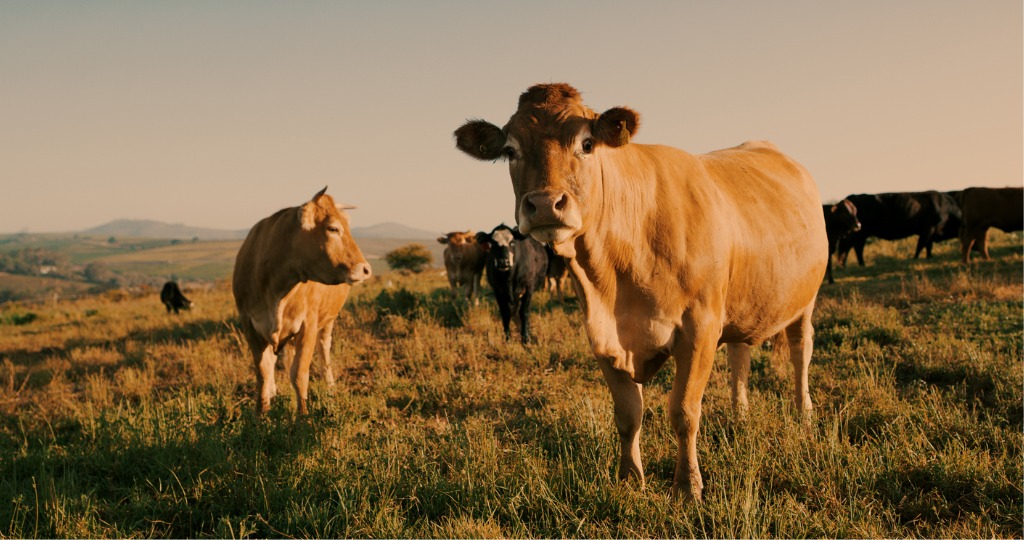
Foot-and-mouth disease (FMD) is currently Australia’s biggest biosecurity threat. With international borders opening earlier this year, Australians are returning to their favourite overseas holiday destination, Bali. Soon after Australia’s borders opened, Indonesia experienced its first outbreak of FMD since 1983. The outbreak in Indonesia is currently uncontrolled. Australian farmers, exporters and consumers are very concerned that the highly contagious disease will infect Australian livestock.
What is Foot-and-Mouth Disease?
Foot and mouth disease is a highly contagious viral disease that affects cloven-hoofed animals including cattle, buffalo, pigs, sheep, goats, deer, camels, alpacas and llamas. Infected animals can suffer a high fever that lasts two to six days. Blisters can then appear inside the mouth and on their feet, hence the name. Blisters on the feet can rupture causing lameness. It can cause animals to lose weight that can’t be gained back for months. Milk production for cows declines significantly and the disease can be lethal to young animals. Any infected animals can be carriers for up to two years
Infected animals can spread FMD to other animals through aerosols and bodily fluids, including exhaled breath, saliva, milk, semen, faeces, urine and the fluid from burst blisters.
It is extremely rare for the disease to spread to humans but can occur with close contact with an infected animal. FMD is different to the hand-foot-and-mouth disease common in young children. FMD can’t be spread through eating meat or dairy products from an infected animal.
How Foot and Mouth Disease Spreads
FMD is one of the most contagious diseases. FMD is thought to be as infectious as the Omicron variant of COVID-19.
An FMD outbreak is difficult to control as it can spread in many different ways. Animals can spread it through close contact with each other, long distance aerosols and on objects such as farming equipment, fodder, plus animal handlers’ clothing, skin and shoes. Even a person in contact with infected livestock can carry the disease in their nose and pass it on to another animal.
Animals can transmit the disease before they show any symptoms of the disease. With an incubation period as long as 14 days, large numbers may be infected before the animal can be quarantined. The symptoms are most likely to be very mild or absent in sheep, making them the most likely to spread the disease to another area after the incubation period.
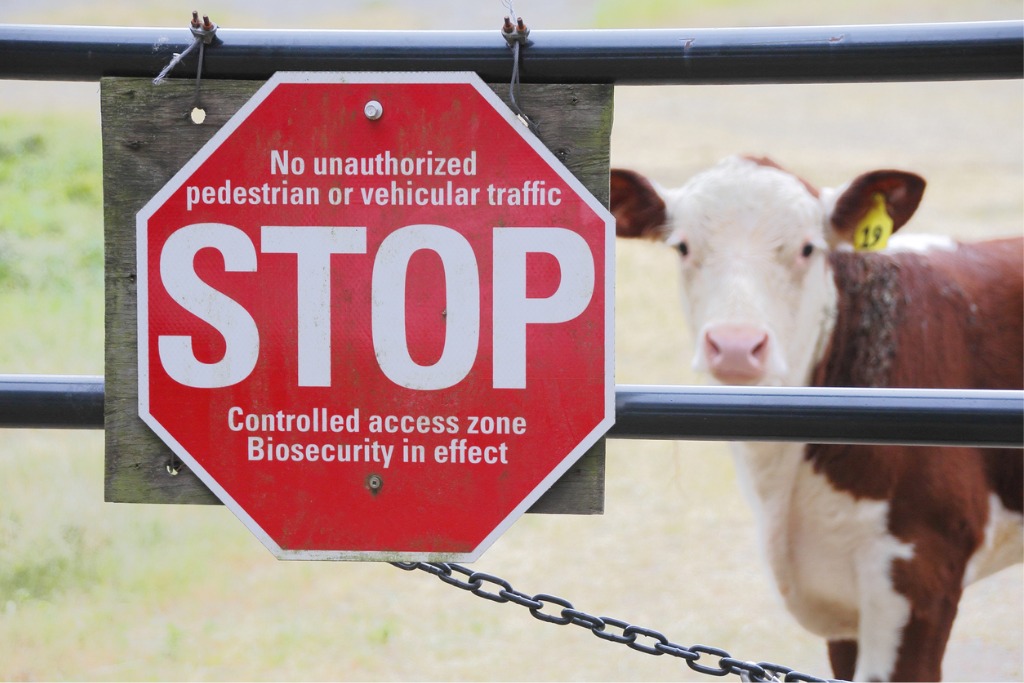
Impact of an Outbreak of FMD in Australia
FMD has a high infection rate but low morbidity rate. Some animals suffer greatly but the disease doesn’t kill them.
The economic and human social costs of a FMD outbreak in Australia could quickly reach billions of dollars. Export bans in light of an outbreak means producers of FMD-susceptible livestock could lose their income overnight.
If an FMD outbreak were to occur in multiple states of Australia, it has been estimated that it would cost $50 billion over 10 years. A single state outbreak is estimated to cost $5-6 billion. Tourism could also be severely impacted by FMD if people can’t freely travel from state to state.
Individuals and rural communities wouldn’t just suffer economic costs but also huge social costs. They may not be able to travel outside their local area for fear of spreading the disease.
Risks from Australians Travelling to Indonesia
The risk of an Australian FMD outbreak from Indonesia is considered very high compared to other countries due to a number of factors.
- There are only limited quantities of vaccines available to protect Indonesian livestock. The disease has spread quickly through the Indonesian islands.
- There are large numbers of pigs and cattle all over Bali.
- Livestock live and move through tourist areas.
- Australian travellers often pat at-risk animals.
- Large number of Australian tourists visit Indonesia.
Travellers can easily step in manure containing FMD and then wear the shoes in Australia. FMD can be present on their skin or clothing when they return to Australia. FMD can remain infective for up to 11 weeks on boot leather and 13 weeks on rubber boots.
How to Reduce the Risk from Indonesia
Travellers to Indonesia can do their part to help Australia stay FMD free.
Think about taking shoes that you’re happy to leave behind in Indonesia rather than bringing them home with you. Ideally, take a pair of shoes that you can leave in your suitcase while you’re in Bali and only wear them once you reach the airport for the return leg.
If you’re taking shoes back to Australia that you have worn out and about in Bali, consider taking shoe cleaning supplies with you. Some detergent and a brush will allow you to scrub your shoes clean before packing or wearing them home.
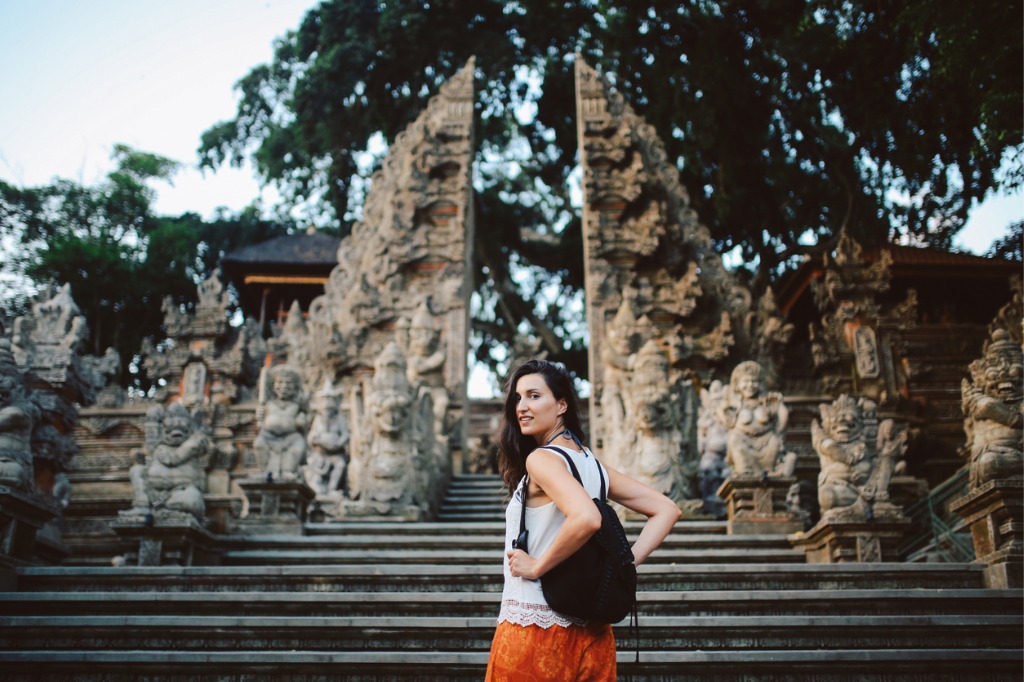
How to Adequately Clean Shoes
- A rinse under the tap isn’t enough to remove potential traces of FMD on shoes. To clean shoes properly, follow those steps:
- Shake or scrape off any loose soil or manure.
- Thoroughly wash soles, laces and other external surfaces with detergent, water and a brush.
- Dry shoes well and check again for any signs of soil or manure.
- If any soil or manure is found, repeat the process.
Any clothes that have been in contact with livestock should be machine washed, preferably before returning to Australia. Tourists can reduce the risk of the disease being on their clothes or skin by not patting animals that are at risk of FMD while they’re in Indonesia.
Travellers should avoid visiting a farm or livestock for seven days after arriving in Australia to ensure the disease can’t be spread via clothing, shoes or skin.
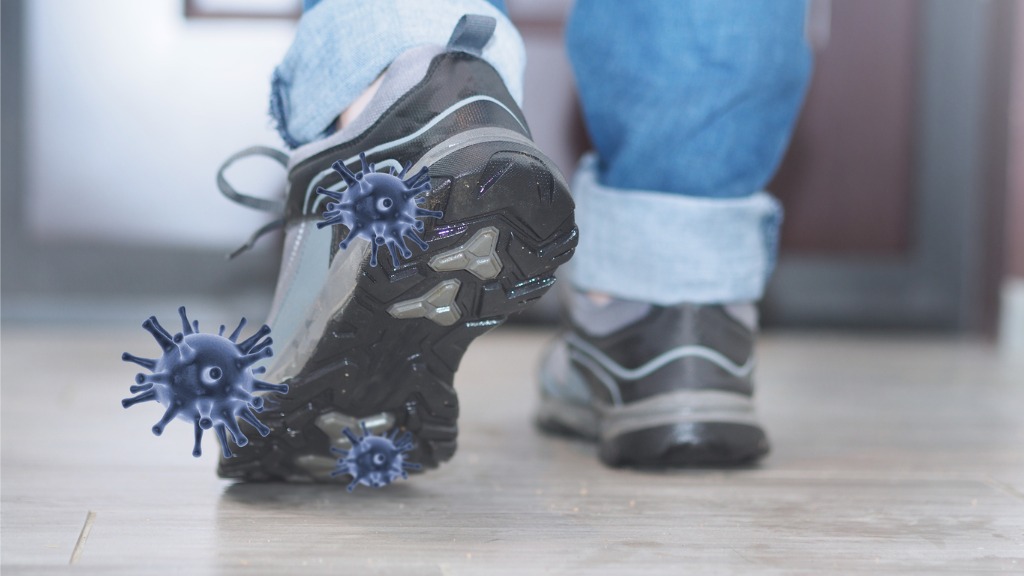
Reducing the Risk at Australian Airports
International airports in Australia that receive flights from Indonesia are taking precautions.
Travellers are required to walk over floor mats which treat shoes by lightly coating the soles with a thin layer of diluted chemical disinfectant. Any contaminated footwear in luggage must be declared on the Incoming Passenger Card. A biosecurity officer is on every flight coming into Australia from Indonesia and biosecurity detector dogs are being used at airports.
When coming back into Australia from Indonesia, you must declare on your incoming passenger card if you:
- have been in a rural area,
- have been near farm animals, or
- are carrying any meat or dairy products.
Australian travellers are being made aware of the threat with mainstream media advertising. Australia has offered assistance to Indonesia to help contain the outbreak. Import permits for some animal products from Indonesia have been suspended.
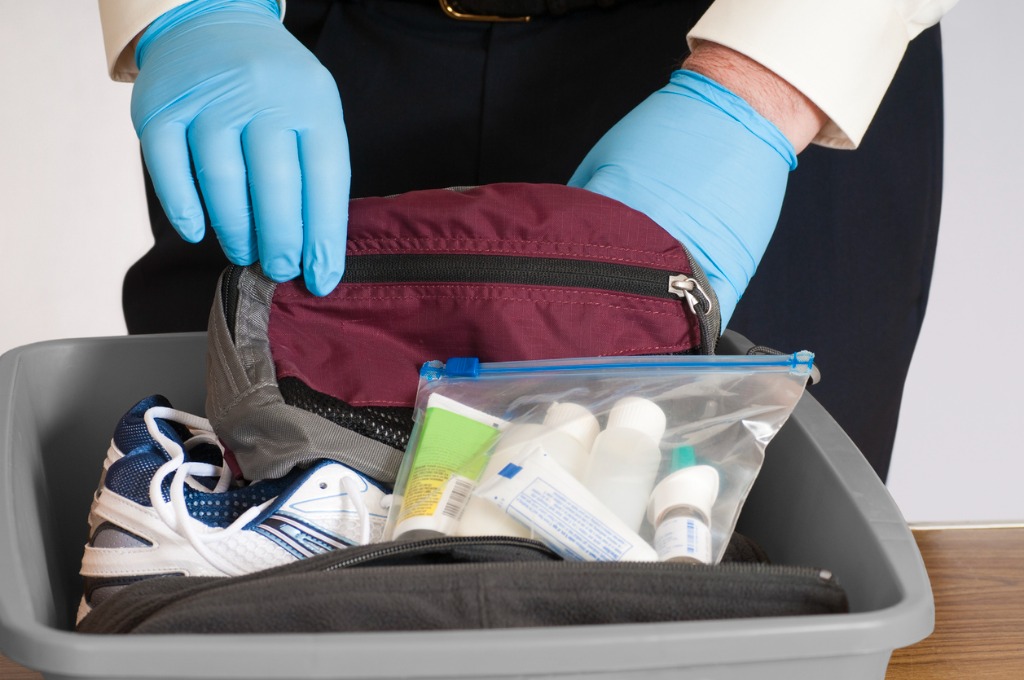
What Would Happen if a Case of FMD Was Found in Australia?
If a case of FMD is found in Australia, it’s likely the federal government will implement a livestock standstill for 72 hours. This means no livestock can be moved anywhere in Australia during this time. If a case is confirmed, infected and healthy animals will be humanely destroyed and access to the area restricted within a kilometres wide radius.
Trace and surveillance will be set up to ensure the disease doesn’t spread to other areas and a public awareness program about the outbreak may begin. Vaccination of livestock may begin if deemed necessary. To be effective, the vaccine must match the circulating strain. If FMD infects feral pigs, the outbreak would be even more difficult to bring under control.
In July 2022, viral fragments of FMD were found on some pork products that had been imported from Indonesia and China. No live virus has been found yet.

Need Travel
Insurance?
We've got you covered
Call 1300 134 060 or Get a quote
Countries with Foot and Mouth Disease
FMD is in around 70 countries but most have contained the disease through vaccination and control measures.
The UK suffered a large outbreak in 2001 which is thought to have started by a farmer illegally feeding his pigs swill which contained infected imported meat. Within days of the virus being discovered at an abattoir, it had spread to 57 farms nationwide. Over six million cows and sheep were slaughtered to bring the outbreak under control. The agricultural losses were estimated at more than £3 billion.
In 2019 China banned the import of cloven hoofed animals and their products from South Africa. The ban lasted for eight months and included wool products.
Australia doesn’t allow the importation of any live animals, semen, uncooked meat or unprocessed dairy products from FMD affected countries. Australia hasn’t had a recorded case of FMD since 1872.
It's always important to consult the Smartraveller website prior to any travel. If you're jetting off to Indonesia, or anywhere else in the world, HIF's travel insurance offers cover under selected benefits if you're diagnosed with a sickness that is recognised as an epidemic or pandemic, during your period of cover.